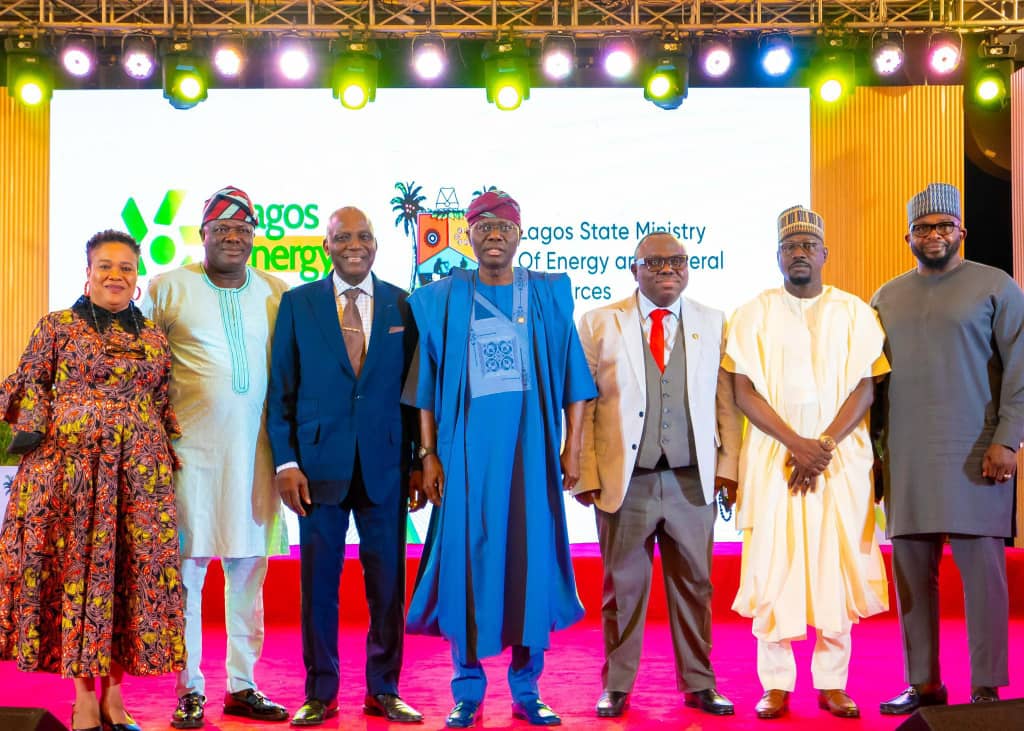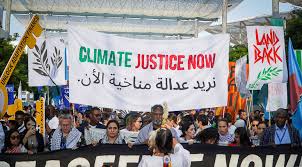- To Slash N14 Trillion Annual Spend on Generators
- 30,000 Lives lost annually through carbon monoxide poisoning from generator fumes
Against the backdrop of the opening ceremony on Day 1 of the ongoing Lagos Energy Summit 2025, a wave of bold declarations, sobering data, and transformative ambitions were unveiled — positioning Lagos as not only Nigeria’s commercial capital but also its clean energy vanguard.
But a lot of work needs to be done.
- 4.5 million generators in use across homes, markets, and MSMEs.
- ₦14 trillion spent annually on generator fuel — at an average price of ₦900/litre.
- 16 billion litres of fuel consumed yearly.
- 38 million tons of CO₂ emissions, far exceeding the annual emissions of entire countries like Togo and Rwanda.
“For decades, Lagos has endured a culture of blackouts,” Says Hon. Biodun Ogunleye, presenting data culled from a comprehensive diagnostic study undertaken by the state in collaboration with SEforALL, which tells a story of survival.
Ogunleye, who is the Lagos State Commissioner for Energy and Mineral Resources, highlighted the staggering costs Lagosians have borne in the absence of stable electricity, while delivering an impact-driven address alongside a forward-looking keynote speech by renowned energy technocrat and former Minister of Power, Prof. Bart Nnaji.
According to Hon. Ogunleye, the roadmap to building a Lagos that is the top destination for energy investment in Africa, powered by electricity that is clean, reliable, and affordable is bold.
Through a mix of gas-fired, grid-scale solar, and captive power projects, Lagos plans to inject 6GW of new electricity capacity into its grid by 2028. This figure is especially significant when compared to Nigeria’s entire available grid power, which often hovers between 3GW–4GW.
To support this ambitious target, the State is rolling out a multi-pronged strategy:
- Ongoing EOIs for clean energy projects to invite global investment and expertise.
- Lagos Electricity Law (2024) — signed by Governor Babajide Sanwo-Olu, giving legal backing to the state’s energy autonomy.
- Clean Lagos Electricity Market — enabling a decentralized and diversified electricity ecosystem.
- Lagos Gas Master Plan — to drive the shift toward cleaner fuels.
- Retrofitting 22,000 streetlights for improved energy efficiency.
Beyond infrastructure and megawatts, the commissioner also disclosed that the state’ energy transition shall also focus on social equity:
- Solarization of schools, healthcare centres, and rural communities in partnership with the REA.
- Clean cooking adoption through localized gas strategies.
- E-Mobility Master Plan to reduce transport-sector emissions.
The Commissioner reaffirmed that over 30,000 lives are lost yearly in Lagos due to carbon monoxide poisoning from generator fumes — a staggering human cost that underscores the urgency of this transition.
With regulatory clarity, financial readiness, and policy-backed direction, Ogunlye re-affirmed that under the T.H.E.M.E.S+ agenda of Governor Babajide Sanwo-Olu, energy is recognized not just as a sector, but as the lifeblood of a 24/7 economy powering infrastructure, driving industry, and shaping livelihoods.
Reflecting on Lagos’ trailblazing history in energy innovation, Prof. Bart Nnaji, keynote speaker at the summit, recalled the landmark 1999 agreement by then-Governor Bola Ahmed Tinubu (now President), which brought Enron into Nigeria — the country’s first private sector-led power generation deal.
According to Prof. Nnaji, who pioneered Nigeria’s power sector reform roadmap, “Lagos took a radical step. That singular move broke federal monopoly and introduced private participation,”
He further emphasized the central role of natural gas in Nigeria’s energy future. “We are blessed with 210.5 trillion cubic feet of gas — the 9th largest reserve globally. If we can’t produce and use it for power, we won’t prosper.”
Prof. Nnaji also linked economic development to energy availability, citing China’s year-on-year correlation between GDP growth and power expansion. “As GDP grows, so must energy access. This is non-negotiable,” he concluded.
Disclosing the various interventions currently in implementation across the state, the commissioner made a call rallying investors, innovators and citizens alike, declaring “Lagos is no longer at the mercy of what doesn’t work. We are building what does. Lagos is ready. Lagos is open for business,”.








There is noticeably a bundle to know about this. I assume you made certain nice points in features also.
meel15